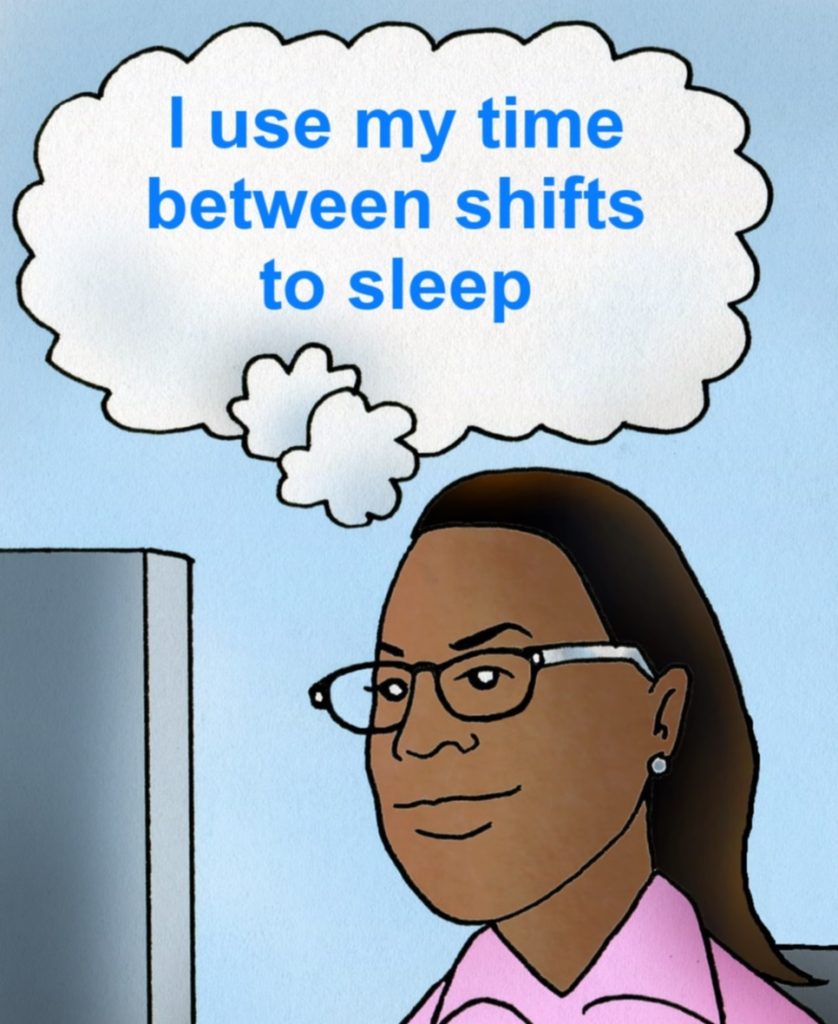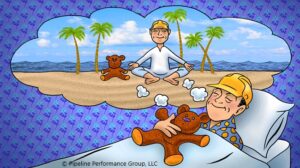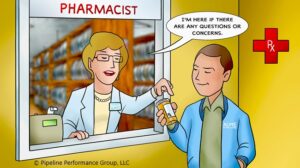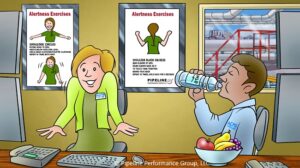Fatigue Training and Education
Carlette is a pipeline controller in a hazardous liquids pipeline control center. We were providing control room team training for the company. On one of the days between the classes, we interviewed some controllers on the effectiveness of their fatigue training and education program. Carlette expressed an interest in being in the 2019 Managing Fatigue calendar, since everyone loves the calendar drawings.
We use a checklist that includes a question about what controllers have done in their personal fatigue management practices as a result of their company’s programs. We were pleased with these responses:
- Regularly communicates with family and friends and plans personal events for off days
- Improved her sleeping environment with blackout shades and a ceiling fan
- Tells family members not to disturb her when she is sleeping in the daytime
- Turns off her personal electronic device when it is time to sleep
- Do the best they can to get an adequate amount of sleep
- Plans what to eat on the job, depending on the shift, and brings appropriate foods
- Changed personal habits for the amount of caffeine used and the times of day it is used
- Use fatigue countermeasures on the job, including conversations with coworkers and exercise
- Enjoy the useful information in the monthly articles and apply it
One Controller, who has been with the company eight months, said that she had received more training about fatigue management in that short time than in all of her previous jobs. I think this company does well because new controllers have one-on-one training with the “Fatigue Risk Advisor,” receive a copy of Scarlet Knight’s book Health and Fitness for Shiftworkers, complete a company developed online course, are provided a fatigue management calendar, read the monthly articles and document that fact, and participate in annual classroom training as a group with different learning methods and opportunities for discussions.
What Is the Difference between Training and Education?
I got an e-mail yesterday asking what is PHMSA’s difference between fatigue training and fatigue education. I do not know PHMSA’s difference, but here is my response: They are using the two words, mostly interchangeably, in the regulatory language in the related inspection questions below the regulatory language. It would be easier if they had just used the word “train” in 195.446(d)(2) instead of the word “educate.” When we develop Fatigue Risk Management systems, we differentiate in this way:
Training is an event that most companies conduct on an annual basis (classroom, CBT, etc.) It meets the requirement for some type of initial training and/or refresher training as outlined in questions D2-1, D2-2, D3-1, and D3-2. In inspections, companies just show their “training records” to demonstrate compliance. Inspectors are generally satisfied with that. We are not.
Education is an ongoing process some companies do, and others do not. Some are satisfied with an annual training event, even if they use the same CBT ad infinitum. We seek to provide our clients and anyone with interest regular educational materials (calendars, 10 years of monthly articles, books, posters, articles from research publications, Linked In posts, etc.)
MANAGING FATIGUE EDUCATIONAL PROGRAM | Charles Alday © 2018 Please Distribute to Others.




